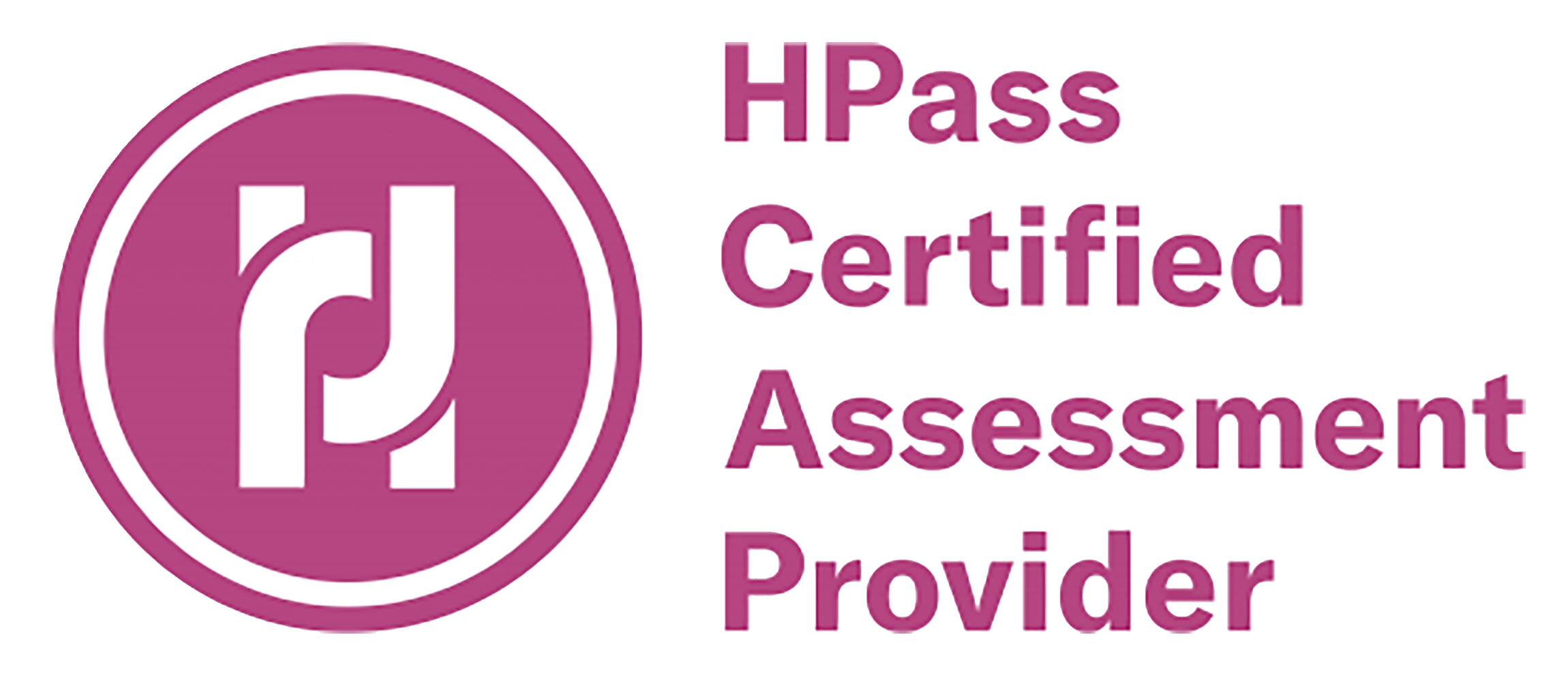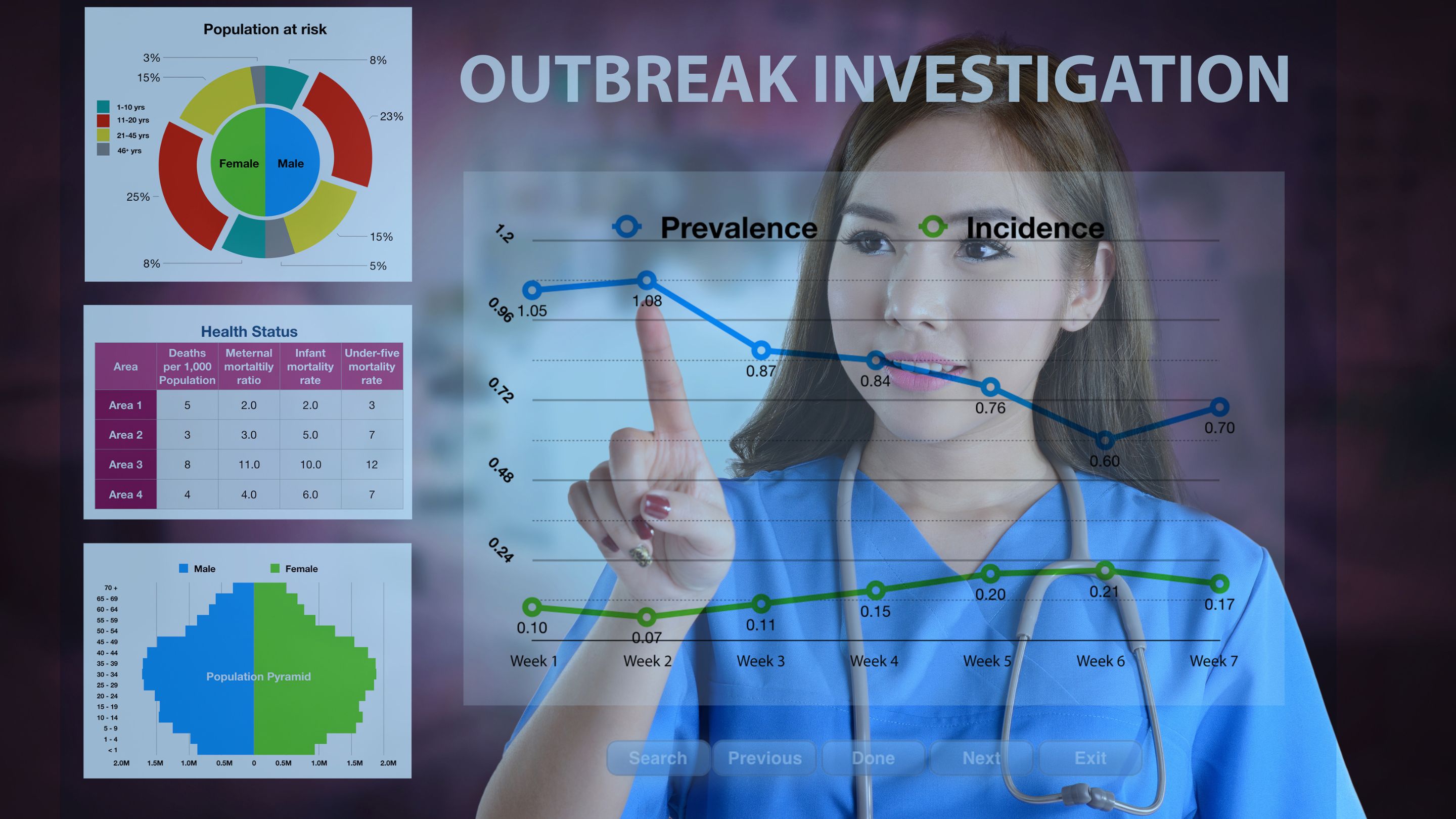-
GeneralGeneral
-
Outbreak Investigation Homepage
This course on Outbreak Investigation provides an introduction to the basic principles and steps involved in investigating and managing infectious disease outbreaks. All components of this training are free, including registration, learning, testing, and a certificate of completion. This course is intended for undergraduate and graduate-level students of medicine, environmental sciences or public health.
The Outbreak Investigation course is co-sponsored by the University of the Incarnate Word. Like all NextGenU courses, it is competency-based, using competencies from the ASPHER’s European List of Core Competencies for the Public Health Professional and the Public Health Emergency Preparedness Core Competencies for EU Member States. This course uses learning resources from world-class academic and governmental organizations such as National Center for Biotechnology Information, the U.S. Centers for Disease Control and Prevention, the European Centre for Disease Prevention and Control, and Cambridge University Press. The course developers are Professor Dick Heller, MB BS MD FRCP FFPH FRACP FAFPHM; Hugo Andres Rojas Aldieri MD, MSc; and Valeria Reynolds, MD, MPH.




A special thanks to the Skills Online Programme of the Public Health Agency of Canada where this course first appeared, and was then used by Peoples-Uni. In 2020, the course was donated to NextGenU.org and underwent revision and restructuring with new modules, learning resources, and assessments.
For a publication on this course’s efficacy, see “A Novel Integration of Online and Flipped Classroom Instructional Models in Public Health Higher Education,” (2014), BMC Medical Education, https://doi.org/10.1186/1472-6920-14-181; see also “Building Public Health Capacity through Online Global Learning,” (2018), Open Praxis, to see more research related to NextGenU.org’s educational model, have a look at NextGenU.org’s publication page. Subscribe to our newsletter to be notified of future updates, new courses, and to be part of our community.
There are 4 modules to complete, which provide:
- A basic introduction to the goal, objectives and steps of an outbreak investigation;
- An overview on descriptive and analytical epidemiology;
- Skills to conduct an Outbreak Investigation.
The completion time for this course is estimated at 17 hours: 5 hours of didactics and curated resources and 12 hours of work studying the resources and participating in activities to assist the student in synthesizing the materials.
You’ll need to connect with a mentor with professional health care training who has both a Master of Public Health (MPH), and epidemiological experience (or their equivalent) to guide your addressing mentor-requiring competencies if you decide to engage with this course’s mentored activity. The mentored activity is required for those aiming to fulfill the Public Health Emergency Preparedness Core Competencies for EU Member States oriented for public health epidemiologists, public health microbiologists, and NFP for preparedness. We hope this is a wonderful learning experience for you, and the feedback you provide after completing the course will help us improve the course for future students.
The course requires completion of all case studies and peer activities. At the end of each lesson, there is a practice quiz. At the end of the course, after you’ve completed each lesson, quiz, and activity, you’ll have access to a final exam, and a chance to evaluate this course. Once you’ve passed that last test, you will be able to download a certificate of completion from NextGenU.org and our course’s co-sponsoring organizations (listed above). We keep all of your personal information confidential, never sell any of your information, and only use anonymized data for research purposes, and we are also happy to report your testing information and share your work with anyone (your school, employer, etc.) at your request.Engaging with this Course:
You may browse this course for free to learn for your personal enrichment; there are no requirements. To register in this course, it is required that learners have obtained a college-level/bachelor's degree.
To PASS and obtain a certificate a learner must successfully complete
- all the reading requirements,
- all quizzes and pass with a 80% with unlimited attempts,
- all case studies,
- the peer activity,
- the final exam with a minimum of 80% and a maximum of 3 attempts, and
- the self and course evaluation forms.
To obtain credit
- complete all requirements listed above for the certificate, and
- your learning institution or workplace should approve the partner-university-sponsored NextGenU.org course for educational credit, as they would for their learner taking a course anywhere.
NextGenU.org is happy to provide your institution with
- a link to and description of the course training, so they can see all its components, including the cosponsoring universities and other professional organization cosponsors;
- your grade on the final exam;
- your work products (e.g. case study activities), and any other required or optional shared materials that you produce and authorize to share with them;
- your evaluations -- course, and self assessments;
- a copy of your certificate of completion, with the co-sponsoring universities and other organizations listed.
To obtain a degree, NextGenU.org co-sponsors degree programs with institutional partners. To obtain a full degree co-sponsored with NextGenU.org, registrants must be enrolled in a degree program as a student of a NextGenU.org institutional partner. If you think that your institution might be interested in offering a degree with NextGenU.org contact us.
We hope that you will find this a rewarding learning experience, and we count on your assessment and feedback to help us improve this training for future students.
Here are the next steps to take the course for credit.
- Complete the registration form.
- Take the pre-test.
- Begin the course with Module 1: Introduction to Outbreak Investigation. In each lesson, read the description, complete all required readings and any required activity, and take the corresponding quizzes.
-
Module 1: Introduction to Outbreak Investigation
Competency covered in this module:
- The public health professional shall know and understand basic demographic and epidemiological aspects.
- Understand international disease reporting requirements.
- The public health professional shall know and understand the contested nature of definitions, models, and concepts of health and disease.
- Be familiar with the steps of an outbreak investigation.
-
Module 1: Lesson 1: Introduction
Learning objectives:
- Remember basic demographic and epidemiological aspects.
- Explain the International Disease Reporting requirements.
- Discuss the contested nature of models and concepts of health and disease
- Discuss the steps of an outbreak investigation.
Approximate time required for the readings for this lesson (at 144 words/minute): 1 hour and 53 minutes
13 URLs, 1 Page, 1 Forum -
Module 2: First Stages (Steps 1 to 4)
 Competency covered in this module:
Competency covered in this module:
- Be familiar with the steps of an outbreak investigation.
- Collaborate with local health officials, healthcare providers, and others to conduct outbreak investigations and epidemiologic studies.
- Before the response operation, identify which triggers will require key decisions during outbreak response.
- Identify as rapidly as possible the (possibly novel) agents responsible for a disease outbreak and their epidemiological characteristics.
- Conduct outbreak investigations to identify pathogens and other agents, characterize affected population groups, and sources of exposure.
- Describe an outbreak in terms of person, place, and time in order to generate hypothesis about its cause or risk factors.
- Document pathogen and likely sources and transmission pathways so as to inform evidence-based measures to control the outbreak.
-
Module 2: Lesson 1: Prepare for Field Work - Step 1
Learning objectives:
- Identify the local officials, healthcare providers, and other personnel who would assist in an outbreak investigation.
- Describe the roles of the various local officials, healthcare providers, and other personnel who would assist in an outbreak investigation.
- Communicate the connection between roles of various local officials, healthcare providers, the investigators, and other personnel contribute to the outbreak investigation.
- Discuss the limitations that legal and policy frameworks may create during an outbreak response.
- Identify the need for PPE and other safety procedures/equipment during an outbreak response.
- Communicate how an outbreak response relates to mobility restriction politics.
Approximate time required for the readings for this lesson (at 144 words/minute): 56 minutes
2 URLs, 1 Page, 1 Forum, 1 Interactive Component, 1 Quiz -
Module 2: Lesson 2: Establish the Existence of an Outbreak - Step 2
Learning objectives:
- Describe the importance of epidemiological characteristics in the identification of an outbreak.
- Summarize sources of exposure.
Approximate time required for the readings for this lesson (at 144 words/minute): 43 minutes
1 Page, 1 URL, 1 Interactive Component, 1 Quiz -
Module 2: Lesson 3: Verify the Diagnosis - Step 3
Learning objectives:
- Discuss main epidemiological characteristics of existing microorganisms with pandemic potential.
- Show learner how to use evidence-based measures to identify likely pathogens and transmission pathways.
Approximate time required for the readings for this lesson (at 144 words/minute): 13 minutes
1 Page, 1 Interactive Component, 1 Quiz - Discuss main epidemiological characteristics of existing microorganisms with pandemic potential.
-
Module 2: Lesson 4: Construct a Working Case Definition - Step 4
Learning objectives:
- Demonstrate how an outbreak is described in terms of person, place, and time.
- Describe how the people affected in an outbreak and the time and place of an outbreak relate to the causes of and risk factors for an outbreak.
Approximate time required for the readings for this lesson (at 144 words/minute): 15 minutes
1 Page, 1 Interactive Component, 1 Quiz -
Module 3: Descriptive and Analytic Epidemiology (Steps 5 to 9)
Competency covered in this module:
- Be familiar with the steps of an outbreak investigation.
- Describe an outbreak in terms of person, place, and time in order to generate hypothesis about its cause or risk factors.
- Conduct case-control studies and other epidemiologic studies to test hypotheses regarding sources of exposure.
- Conduct outbreak investigations to identify pathogens and other agents characterize affected population groups, and sources of exposure.
- Perform descriptive analysis of public health surveillance data
- Generate hypothesis about the cause and/or risk factors of the outbreak.
-
Module 3: Lesson 1: Find Cases Systematically and Record Information - Step 5
Learning objectives:
- Discuss how affected persons are categorized into population groups based on predetermined characteristics.
- Explain public health surveillance data and its relation to descriptive analysis.
Approximate time required for the readings for this lesson (at 144 words/minute): 14 minutes
1 Page, 1 Interactive Component, 1 Quiz - Discuss how affected persons are categorized into population groups based on predetermined characteristics.
-
Module 3: Lesson 2: Perform Descriptive Epidemiology - Step 6
Learning objectives:
- Describe how the people affected in an outbreak and the time and place of an outbreak relate to the causes of and risk factors for an outbreak.
- Provide examples of descriptive analysis of public health surveillance data.
Approximate time required for the readings for this lesson (at 144 words/minute): 28 minutes
1 URL, 1 Interactive Component, 1 Forum, 1 Quiz -
Module 3: Lesson 3: Develop Hypotheses - Step 7
Learning objectives:
- Demonstrate hypothesis development.
1 Page, 1 Interactive Component, 1 Quiz -
Module 3: Lesson 4: Evaluate Hypotheses Epidemiologically - Step 8
Learning objectives:
- Develop epidemiological studies to test hypotheses regarding sources of exposure.
1 URL, 1 Interactive Component, 1 Quiz -
Module 3: Lesson 5: As Necessary, Reconsider, Refine, and Re-evaluate Hypotheses - Step 9
Learning objectives:
- Discuss the steps of an outbreak investigation.
1 URL, 1 Interactive Component, 1 Quiz -
Module 4: Control, Surveillance and Communication (Steps 10-13)
Competency covered in this module:
- Be familiar with the steps of an outbreak investigation.
- Review the evidence on current or impending outbreaks; propose and advocate adaptations to policies as needed.
- Use evidence based methods to identify and recommend control and preventive measures to control an outbreak.
- Document pathogen and likely sources and transmission pathways so as to inform evidence-based measures to control the outbreak.
- Establish and maintain indicator and event-based surveillance system(s) to detect public health threats.
-
Module 4: Lesson 1: Compare and Reconcile with Laboratory and Environmental Studies - Step 10
Learning objectives:
- Discuss the steps of an outbreak investigation.
1 URL, 1 Interactive Component, 1 Quiz -
Module 4: Lesson 2: Implement Control and Prevention Measures - Step 11
Learning objectives:
- Summarize the evidence that influences policy during an outbreak.
- Connect how evidence influences policy development and change.
Present the methods used to identify preventative measures to control an outbreak.
Explain how evidence-based methods influence outbreak control and preventative measures.
Approximate time required for the readings for this lesson (at 144 words/minute): 12 minutes
3 URLs, 1 Interactive Component, 1 Quiz, 1 SCORM package -
Module 4: Lesson 3: Initiate or Maintain Surveillance - Step 12
Learning objectives:
- Explain the components of a surveillance system and how they are utilized to detect public health threats.
Approximate time required for the readings for this lesson (at 144 words/minute): 29 minutes
1 URL, 1 Page, 1 Interactive Component, 1 Quiz -
Module 4: Lesson 4: Communicate Findings - Step 13
Learning objectives:
- Explain how the components of outbreak investigation are communicated in a report.
- Evaluate the applicability of the outbreak investigation process in your settings.
Approximate time required for the readings for this lesson (at 144 words/minute): 8 hours and 51 minutes
1 Page, 1 Forum, 1 Quiz -
Mentored Activity: Case Study
Competencies covered in this module:
-
Conduct outbreak investigations to identify pathogens and other agents, characterise affected population groups, and sources of exposure.
This mentored activity is required for those aiming to fulfill the Public Health Emergency Preparedness Core Competencies for EU Member States oriented for public health epidemiologists, public health microbiologists, and NFP for preparedness. To complete this activity, you will need to identify a mentor with professional health care training who has both a bachelor’s/college degree, a Master of Public Health(MPH), and epidemiological experience or equivalent to assist you.
1 Assignment -
Conduct outbreak investigations to identify pathogens and other agents, characterise affected population groups, and sources of exposure.
-
Course and Self Evaluation & Certificate
 In this section, you can provide feedback about this course to help us make NextGenU.org better. Once evaluations are completed, you will be able to download your certificate of completion.
In this section, you can provide feedback about this course to help us make NextGenU.org better. Once evaluations are completed, you will be able to download your certificate of completion.


